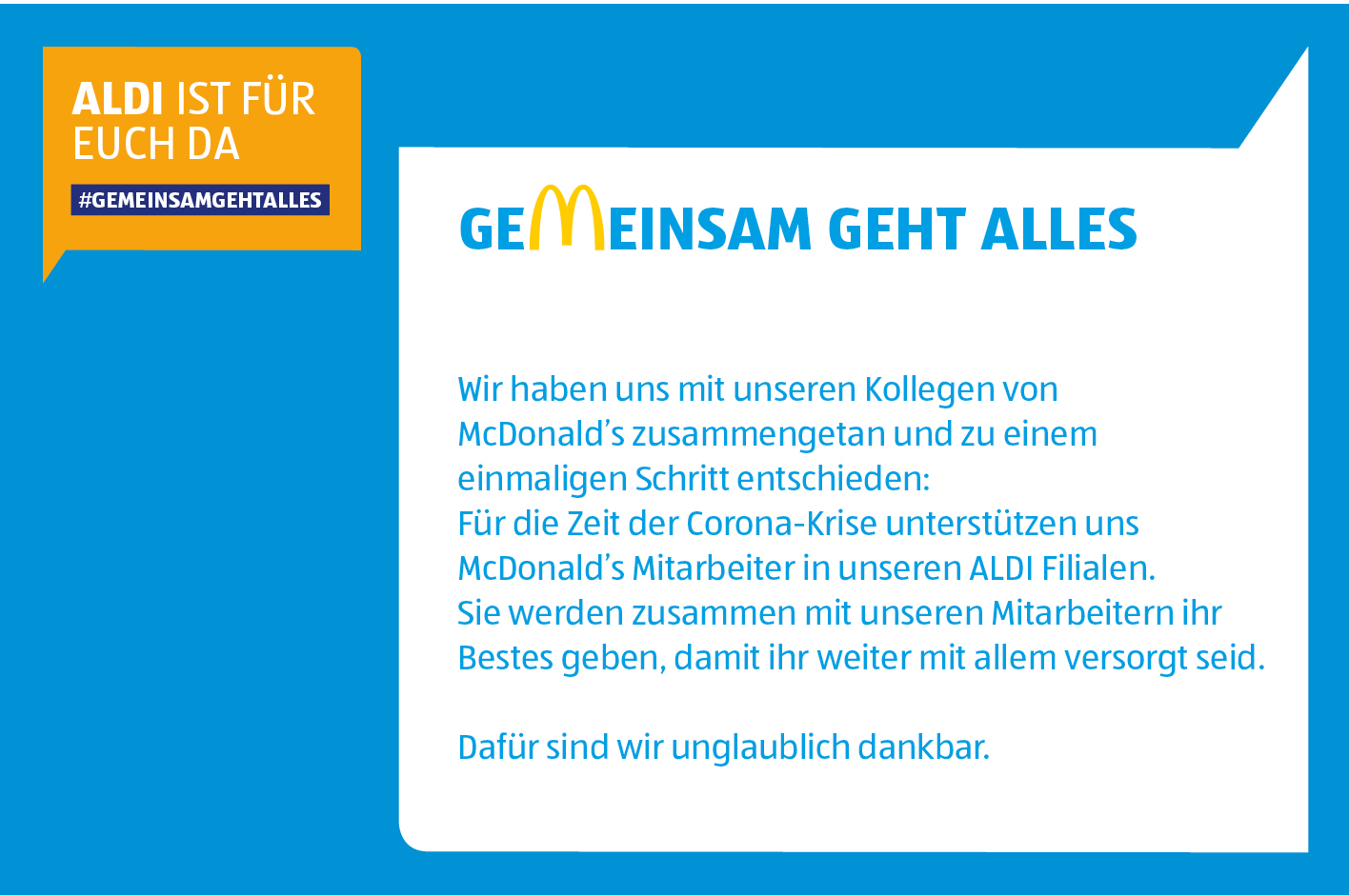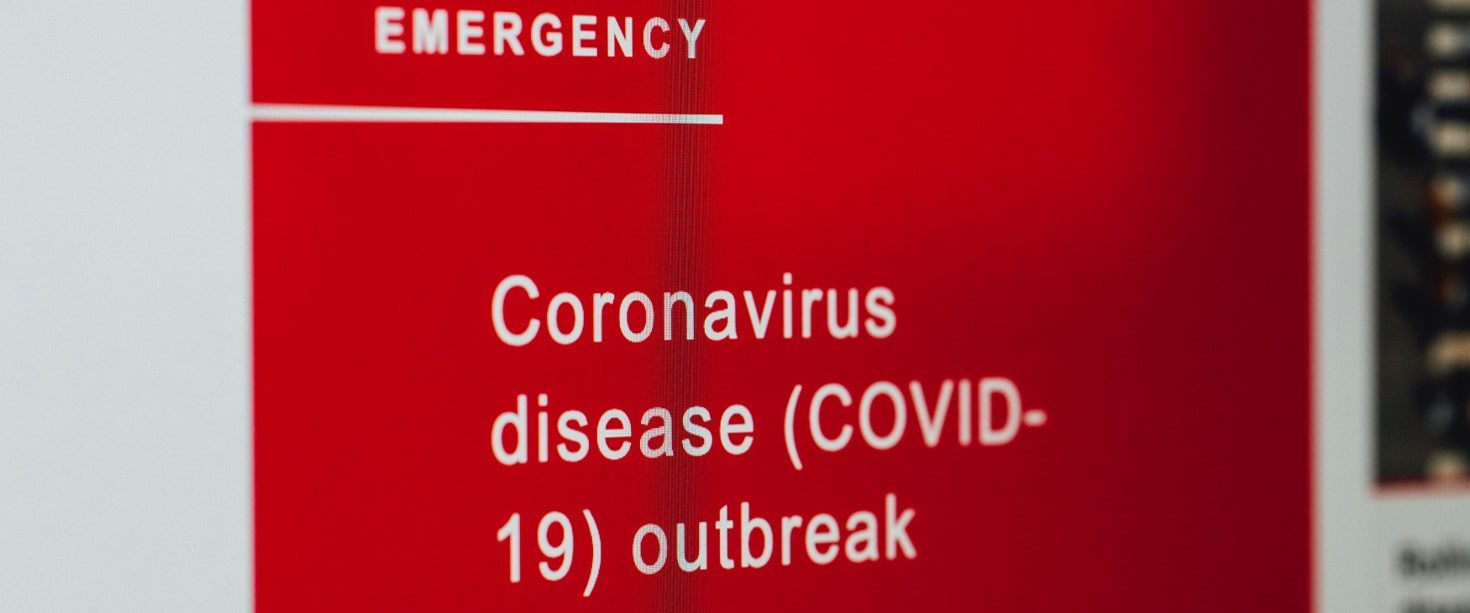The extent of the social and economic impact resulting from the global coronavirus pandemic is still unknown. Many things previously thought impossible have now become reality. Nationwide lockdowns, curfews, and the entire workforce sent into home office are just some of the drastic measures that have been taken and will require adjustment in many areas. One thing has quickly become clear: the crisis affects all of us. Companies have been affected to varying extents, based on their industry, however, it is essential for everyone to tackle the crisis one way or another.
From a communication perspective, the situation can be confusing: while more and more companies become unsure of their future and thus hesitant about their crisis communication, others are already providing transparency regarding their situation. Some have even taken the initiative to make contributions, for example through direct aid, conversion of their production facilities, or staff partnerships. By continuously monitoring coronavirus related communication of large organizations, we have developed a good overview of the response strategies of proactive companies. We would like to share an excerpt of this analysis with you:
Disinfectant Instead of Perfume
At the forefront of this virus response action is the French luxury group LVMH, known for brands such as Dior, Guerlain, and Givenchy. They have halted the production of their cosmetics in three of the group’s largest factories and converted them for the production of hand disinfectants, all of which will be sent directly to French health care facilities free of charge. As of yet, there is no information available on the targeted volume, but it is highly probable that this is not just a PR exercise, but a serious aid campaign. Irrespective of this the press response to the announcement was enormous.
Fighting Loneliness with Data Volume
In times of “social distancing” and self-isolation, the need for digital communication and digital consumption is increasing. Deutsche Telekom is responding to this in line with its brand promise “Life is for sharing” and is granting 10 GB of additional data volume to enable “digital bonding” to all their customers. Prior to this, Telefonica had also announced that it would not reduce surfing speed after the included data volume had been used. Telekom CEO Tim Höttges has taken the opportunity to use this situation for his personal positioning as an approachable and agile corporate leader.

Production Conversion in The Automotive Industry
While production at BMW, Daimler and Co. are being stopped, Tesla’s CEO, Elon Musk, is considering switching the production to ventilators. Of course, this will take time, but it is possible. It is clear that automobile manufacturers are directly affected by the crisis and face enormous operational and financial challenges. Other manufacturers are considering similar measures to Tesla which others, like BMW and Volkswagen, are donating their stocks of respiratory masks to hospitals. Similarly, clothing manufacturers such as Trigema are also taking the opportunity to switch part of their production to protective masks, utilizing the media impact. Other companies, such as the material manufacturer Covestro or the automotive supplier Schaeffler, had already taken action much earlier and started extensive donation campaigns while the coronavirus pandemic was still geographically confined to China.
Staff Partnership Between Mcdonald’s and ALDI
Even the fast-food giant, McDonald’s, is affected by the restrictive measures of public life and has taken action. As part of a staff partnership, McDonald’s employees are to be deployed at Aldi, where there is a desperate need for additional staff to sell and refill shelves. After the assignment, they will be able to return to McDonald’s.

Customs Rain on Mask Manufacturer 3M
However, not all companies generate positive headlines. For example, during an inspection at 3M’s European distribution center in Jüchen, German customs confiscated high-quality respiratory masks and other protective gear, which were intended for illegal export. Due to the coronavirus crisis, medical equipment may currently only be exported from the EU in exceptional cases.
Supermarket Manager’s Angry Speech
One thing is certain – the coronavirus has put companies and people under pressure. The struggle over toilet paper in many supermarkets is one demonstration of this. Some of those in charge already have reached their limit, such as Dieter Hieber, a shareholder of Hieber’s Frische Center KG, a regional retail chain belonging to Edeka. In an emotional Facebook post Hieber addressed the “Generation XYZ”: “A few weeks ago you complained that the future had been stolen from you! If the Fridays for Future generation doesn’t stay at home now, it will suffer the consequences along with their children and grandchildren. From now on no more “alcohol, chips, etc.” will be sold to the “party people”. This angry Facebook post ignited heated discussions in the social networks and is currently no longer available. The EDEKA group was clearly against this generalized lecture delivered to a key customer group.
Doing Good and Talking About It Well
These examples show that, depending on the industry, it is easier for companies to publicly react to the coronavirus crisis. This is especially true – in the case of LVHM or Telekom – when the aid contribution is based on the company’s business model. Other companies, in turn, are making generous donations. No matter how willing a company is to help, credibility depends to a large extent on the design of the accompanying (crisis) communication. This must amount to more than just an announcement of abstract aid promises because ultimately only concrete measures will help. Ideally, these aid measures should be communicated in a way that the companies do not look like they were forced (as in the case of the German car manufacturers, who only donated respiratory masks after being specifically requested to do so by the Ministry of Health), but instead show they are actively willing to contribute to solving the coronavirus crisis with their resources.



